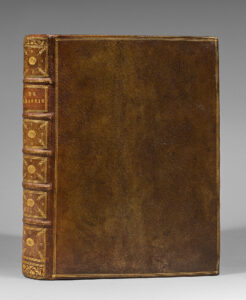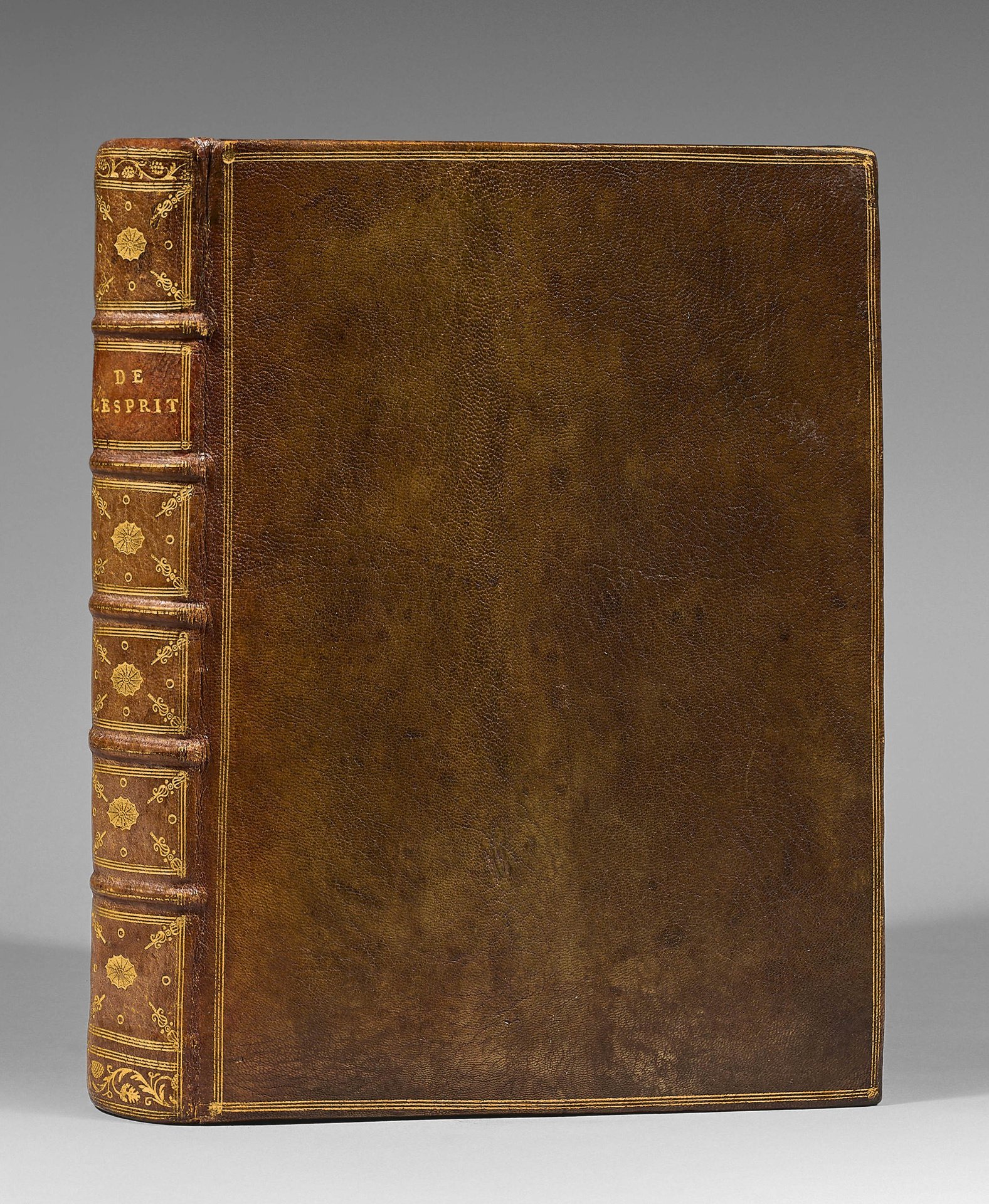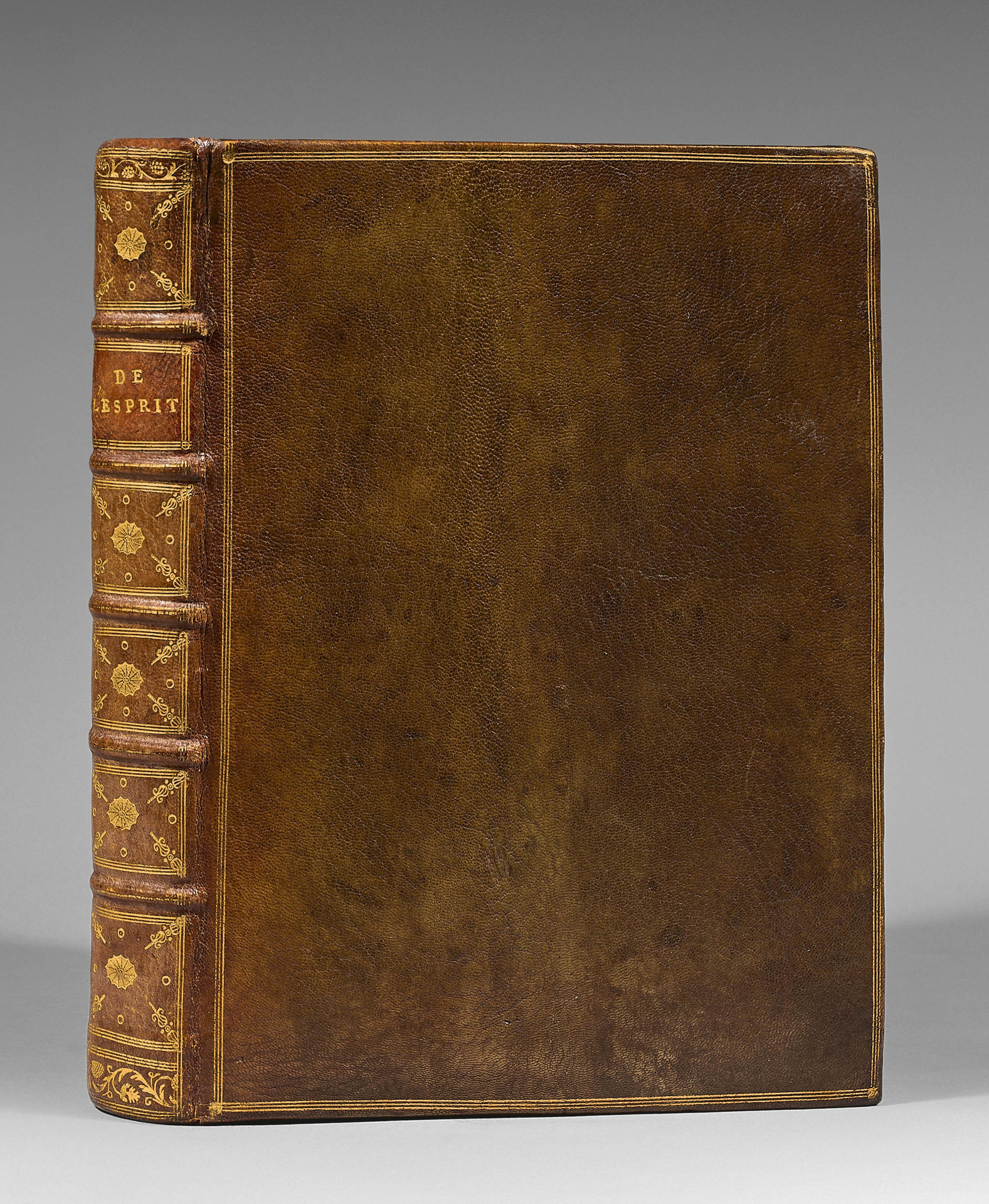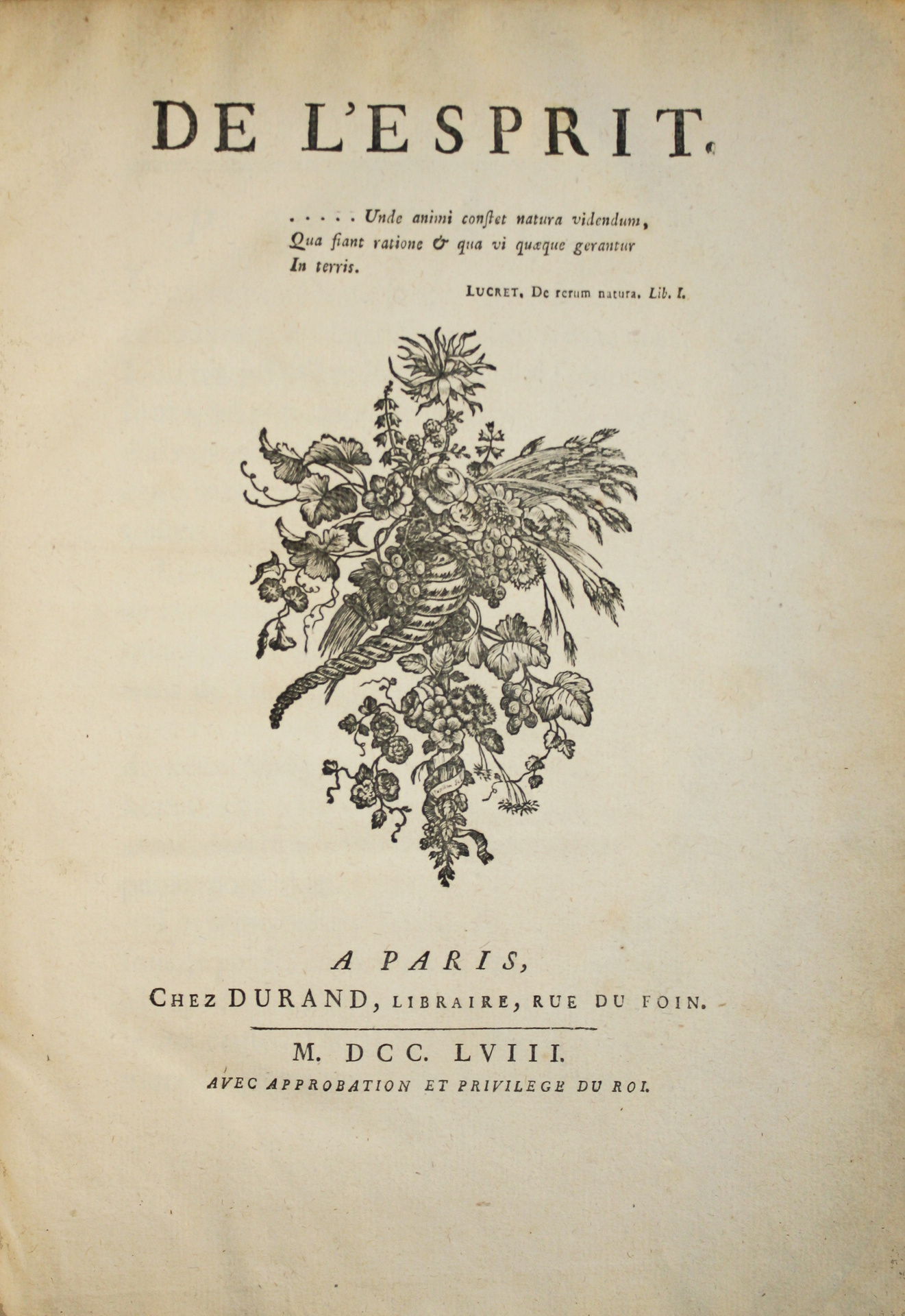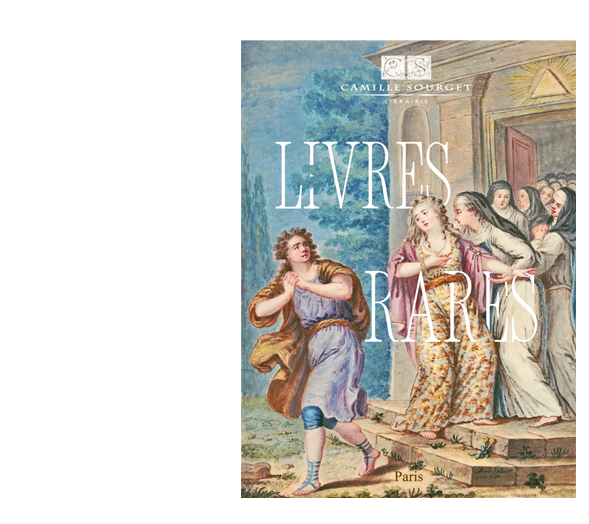A Paris, chez Durand, Libraire, Rue Du Foin, 1758. Avec Approbation et Privilège du Roi.
Large 4to [253 x 193 mm] of (2) ll., xxii pp., 643 pp., (1) p. Full bronze green morocco, triple gilt fillet around the covers, spine ribbed and decorated, inner roll-stamp, gilt edges. Contemporary binding in morocco.
First edition, seized and condemned to be burned immediately upon publication.
Copy from the issue C.
“De l’esprit had a huge scandal success. It is considered today as one of the most systematic and absolute forms of French materialism of the 18th century.” (Jacques Guérin).
Diderot considered that this book was “a furious sledgehammer blow worn on prejudices”.
“This famous work was censored by La Sorbonne as containing all the scattered poisons distilled in the different modern books, that is contemporary ones” (Tchemerzine).
The work dedicated to the royal family, was rejected by the latter, and on August 10, a few days after that of the publication, the privilege, given on May 12, was revoked. Despite the Letter to the Reverend Father… [Berthier or Pleix), which constitutes an apology and a retraction, followed by a another more explicit retraction, the book was blamed by the clergy.
Helvetius made these retractions out of friendship for his censor Texier, who had had a lot of trouble because of him. These copies present Petitions on pages 1-16, 35-38, 59-62, 67-70, 75-78, 139-142, 145-154, 159-160, 169-176, 187-190, 227-230, 233-234, 239-240, 459-462, 545-550, 603-606.
In the issue A, the first word of page 5 is “dans”; “de” in the issue B and “mon” in the common issue C.
“The social and religious ideas developed in “De l’Esprit” are often borrowed from Hobbes, Diderot, Voltaire or Montesquieu; some of his theories on self-love, the interest and fecundity of passions, the identity between moral and social question, are not unlike Vauvenargues, La Rochefoucauld or Machiavel. However, how to explain the huge “scandal success” that greeted the publication of this book? We know that the reaction of the Church and the State was not long in coming, and that a cascade of condemnations were launched against the author, who had uselessly published his book anonymously. The author had to take refuge in England, then in Germany, where he was the guest of Frederick II. The Archbishop of Paris, Mgr Christophe de Beaumont, issued, on November 22, 1758, a special order against the book; La Sorbonne and the Parliament interfered, so much that De l’esprit was burnt by the executioner himself. This condemnation was to entail, the following year, that of the Encyclopedia.
This “scandal success” undoubtedly holds to the fact that with Helvetius fall the last theological barriers in which the sensualism of Locke, and also that of Condillac, was still locked up. With Helvetius, the French materialism of the 18th century took one of its most systematic and absolute forms and resolutely replaced the idealist myth, which states that it is the ideas that govern the world and men, the materialist principle, which considers that it is by transforming the environment that has formed him that man kind will be transformed. It is understandable that such a principle could only arouse passion and interest at a time where great changes in society appeared to be more probable and desirable.” (Guy Schoeller).
Beautiful copy bound in contemporary green morocco coming from the famous library of Madame de La Borde with ex-libris.
